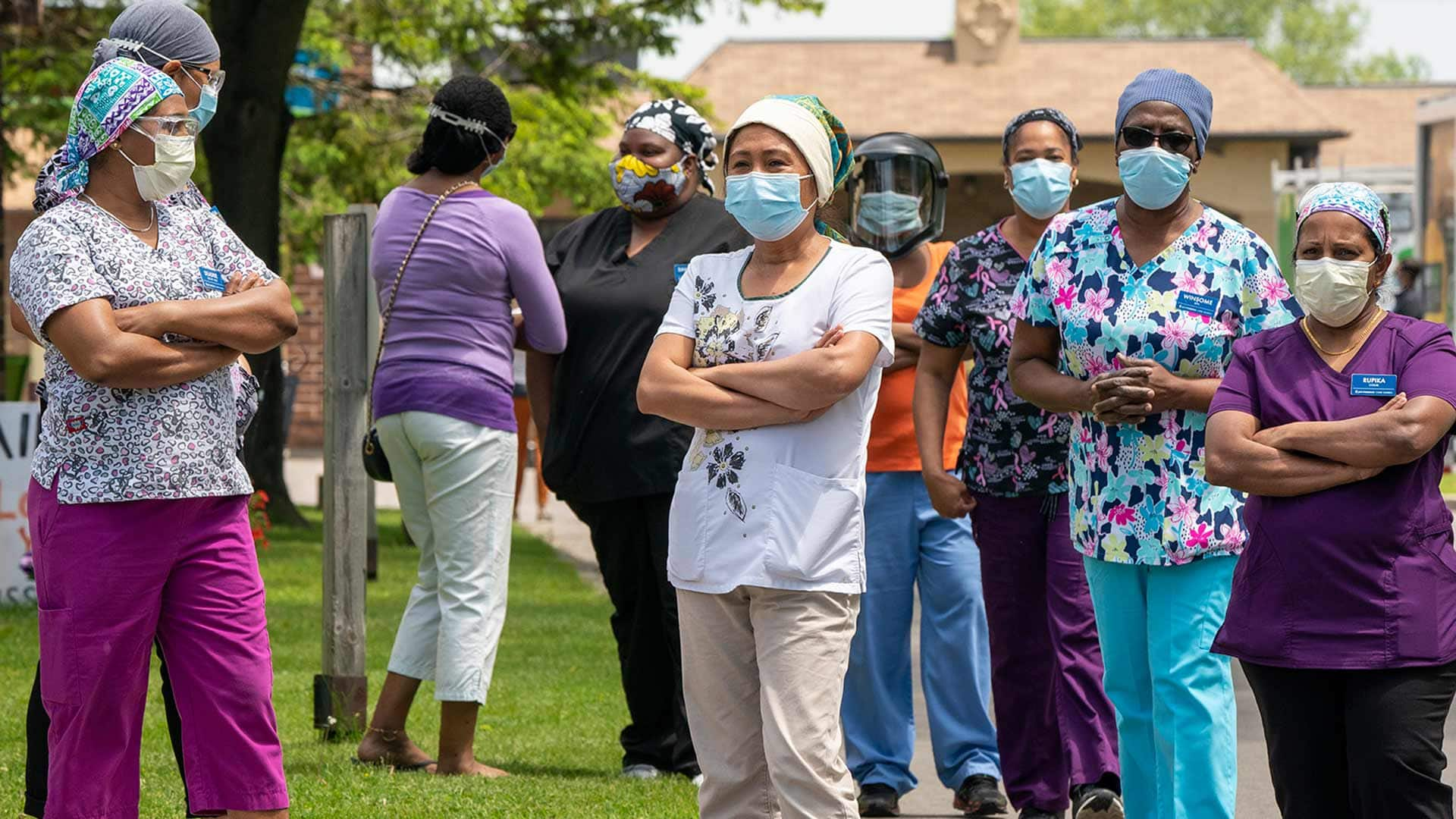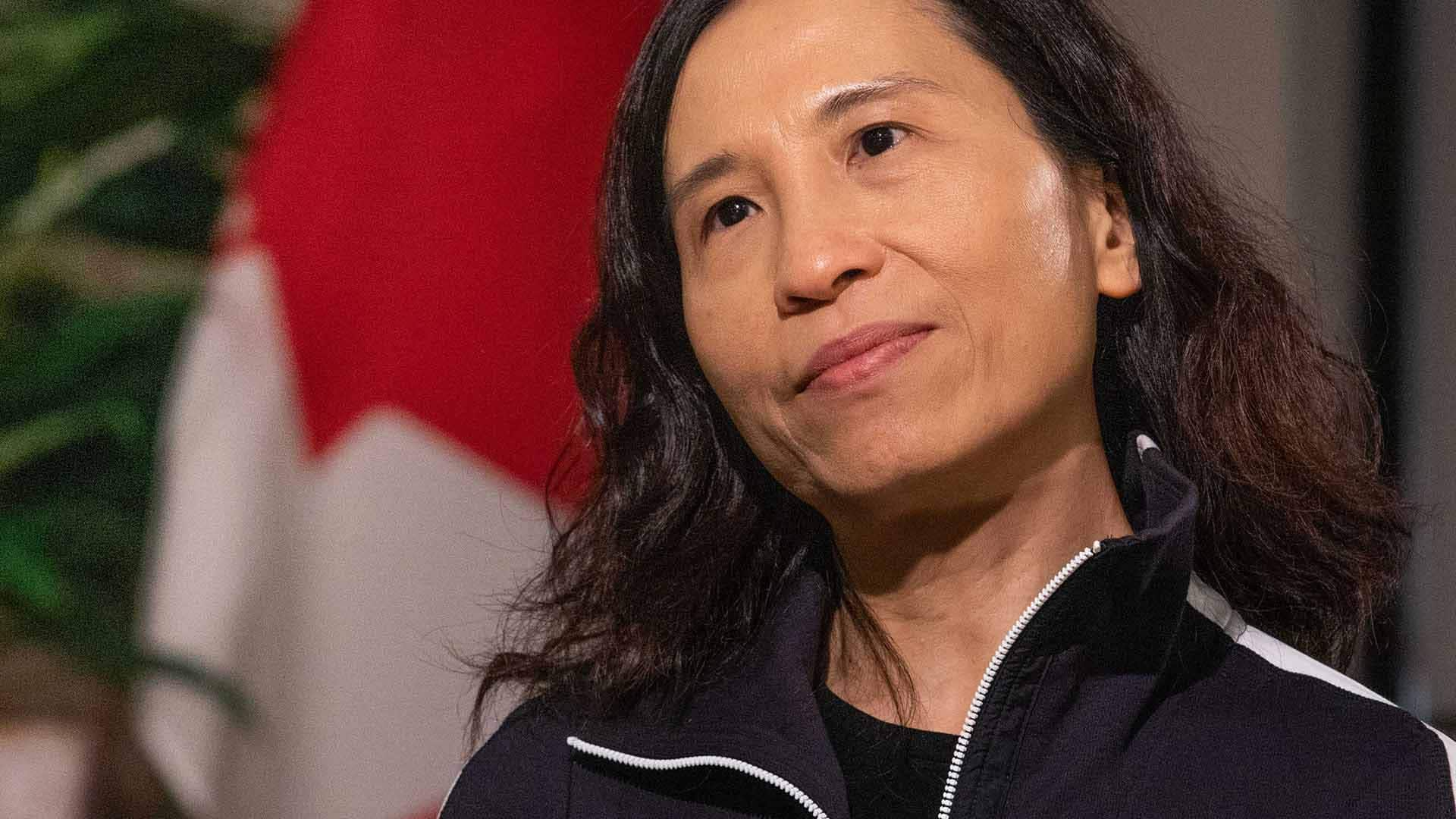That is an excerpt from Second Opinion, a weekly roundup of well being and medical science information emailed to subscribers each Saturday morning. If you have not subscribed but, you are able to do that by clicking here.
Within the years that adopted the 2003 SARS outbreak that contaminated over 400 Canadians and killed 44, an unbiased inquiry was launched in Ontario to research the response to the outbreak and study from the errors made.
A few of the consultants concerned in that inquiry say there was one key lesson realized on the time — which Canada failed to use when the coronavirus pandemic hit.
On the helm of the 2007 SARS Commission was Justice Archie Campbell, a superior courtroom choose with an “insatiable curiosity,” who colleagues say was decided to make sure the teachings from the outbreak had been by no means forgotten.
As Campbell met with advisers within the library of a federal constructing in downtown Toronto, he famous how a long time of earlier royal fee reviews had been there simply gathering mud on the cabinets.
“We might look across the room and he’d level out a royal fee and he’d say, ‘So far as I do know, that’s so far as the suggestions of that royal fee obtained. They’re sitting on the library shelf,'” remembers lawyer Doug Hunt, chief counsel for the fee. “And he stated, ‘I are not looking for ours to finish up that method.'”
WATCH | Well being-care staff put in danger as classes from SARS not utilized in COVID pandemic:

Classes realized from SARS in 2003, together with guaranteeing the provision of private protecting gear and entry to sick depart, weren’t utilized to the COVID-19 pandemic, and that put the lives of health-care staff in danger, a report commissioned by Canada’s nurses’ unions says. 2:01
That was the driving drive behind the inquiry, which aimed to completely examine the outbreak and clarify suggestions that governments would need to comply with within the face of future infectious illness outbreaks.
“We had nice hope on the time,” stated Hunt. “However I feel in the long run, from a authorities standpoint, it did find yourself simply on the cabinets of that library.”
Canada did not ‘err on the facet of warning’ early in pandemic
Canada has confronted a way more dire scenario within the coronavirus pandemic, with greater than 190,000 COVID-19 circumstances and 9,700 deaths within the eight months because it started.
However consultants who labored on the SARS Fee say if the teachings from SARS had been higher utilized early on, the nation may have fared a lot better.
“Canada, China, Hong Kong and Taiwan had greater than 90 per cent of all SARS circumstances and deaths, so that they’re those who we needs to be evaluating ourselves to,” stated Mario Possamai, a senior adviser to Campbell on the SARS Fee. “Canada now has extra COVID-19 deaths and circumstances than China, Taiwan and Hong Kong mixed.”
He stated an important lesson from the SARS Fee was an idea referred to as the “precautionary principle,” a method that future governments may apply to make sure the scenario did not get uncontrolled.

The fundamental tenet of that precept is to all the time take the most secure strategy in an outbreak and never anticipate all the scientific proof earlier than performing.
“What Justice Campbell stated was that when there’s scientific uncertainty, err on the facet of warning and shield well being care staff and shield Canadians,” stated Possamai. “And we did not try this.”
Possamai stated early hesitation on closing borders to worldwide travellers, the resistance to recommending the use of masks for most people and the influence of a depleted national stockpile of PPE had devastating penalties on Canada’s capability to manage COVID-19.
“In case after case, a precautionary strategy would have made a distinction,” stated Possamai. “We weren’t solely late in shifting in that path, however there was an actual lack of transparency.”
Time and time once more the Public Well being Company of Canada assured Canadians it was utilizing the perfect steering obtainable, however declined to quote the particular scientific proof behind its selections, like its reluctance to acknowledge asymptomatic transmission and the potential for airborne spread of the virus — one thing Possamai stated prompted confusion.
“What had been the research? What was the science?” he requested. “It is fully opaque.”
Hunt stated the shortage of private protecting gear obtainable to frontline health-care staff initially of the pandemic was “inexcusable,” and referred to as the choice to destroy millions of expired N95 masks final 12 months “mind-boggling.”
The federal authorities was broadly criticized early within the pandemic for failing to keep up an ample provide of private protecting gear within the Nationwide Emergency Strategic Stockpile (NESS), and for sending 16 tons of PPE to China, resulting in a scramble to procure supplies. Canada has since turn into nearly solely self-sufficient in producing its personal PPE, and China has repaid the donation.
Canada’s Chief Public Well being Officer Dr. Theresa Tam lastly conceded this week that the science is “evolving” on whether or not COVID-19 might be transmitted through aerosols — or microscopic airborne particles — but PHAC’s guidelines nonetheless make no point out of it.
“In key areas, we simply did not take a precautionary strategy,” Possamai stated. “The sorts of arguments that the federal authorities made on the time did not make sense then, and make even much less sense now.”
Canada ‘should do quite a bit higher’ at defending aged in 2nd wave
Prime Minister Justin Trudeau responded to questions final week about whether or not Canada’s classes from SARS had been adopted, after the discharge of a report Possamai authored that alleged Canada put health-care staff at undue danger of COVID-19.
“As we glance again on these first months, there are a whole lot of issues we may have completed in a different way, we must always have completed in a different way, and issues we’re studying from,” Trudeau stated throughout a information convention on Oct. 5.
“On the identical time, lots of the issues that we had been capable of do efficiently in these first months of the COVID-19 pandemic had been primarily based on classes realized from SARS.”
WATCH | Dr. Theresa Tam displays on Canada’s early COVID-19 response:

Half 1 of three of Rosemary Barton’s unique interview with Chief Public Well being Officer Dr. Theresa Tam about Canada’s response to the COVID-19 pandemic. 9:44
Tam stated the federal government did “study quite a bit” from the SARS outbreak, noting that each PHAC itself and her place had been created due to the inadequacies that had been recognized within the aftermath.
“Each outbreak or pandemic is completely different,” she stated. “This one is magnitudes greater than SARS itself, so I do know we are going to study much more from this than we did the final time round.
“We have to broaden pandemic preparedness going ahead.”
Tam stated that features increasing past hospitals into long-term care properties, including that the federal government “should do quite a bit higher” at defending aged residents and health-care staff who work in them.
To this point, greater than 21,000 Canadian health-care staff have contracted COVID‐19, about one in 5 circumstances, whereas over 70 per cent of deaths from COVID-19 occurred in those aged over 80 — about twice the average of rates from other developed countries.
“The precautionary precept, this time, is a shame,” stated Doris Grinspun, the pinnacle of the Registered Nurses’ Affiliation of Ontario who labored on the entrance traces of SARS in 2003 and referred to as for an inquest into the outbreak.
“We should always have recognized that we wanted to be higher ready.”
Grinspun stated whereas communication and co-operation between completely different ranges of presidency has improved since SARS, she feels Canada must study from the errors of the primary wave to include the unfold of COVID-19 extra efficiently in the second.
“This time, we’re higher ready than the primary wave,” she stated, including that following the precautionary precept for residents of long-term care within the second wave would imply hiring extra workers.
“Now we have been saying ‘rent, rent, rent,’ as a result of come the autumn with the twindemic — the flu and COVID — we will likely be in hassle.”
To learn all the Second Opinion publication each Saturday morning, subscribe by clicking here.